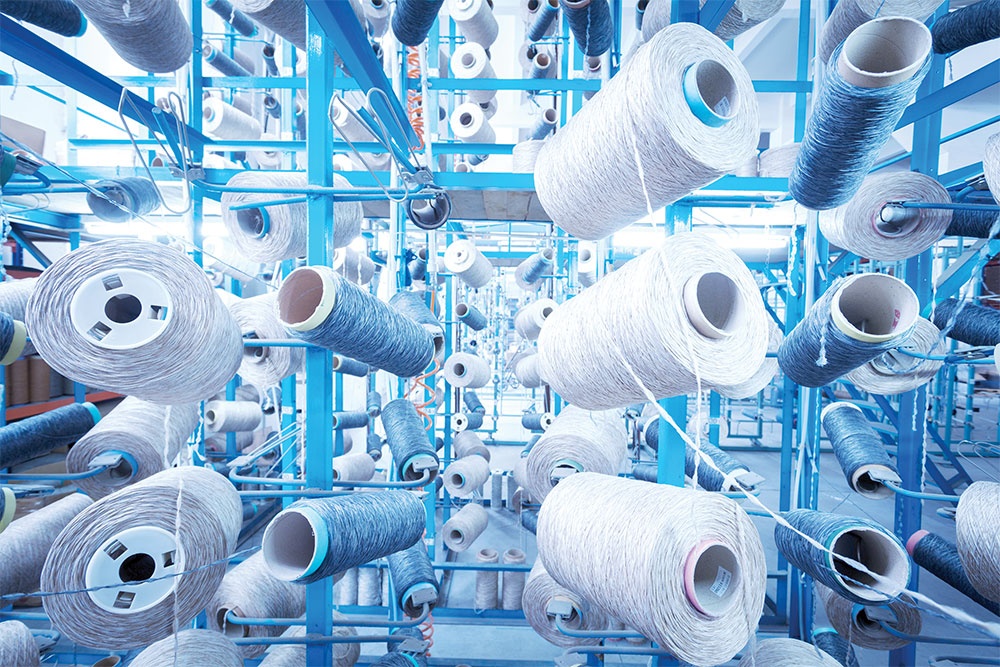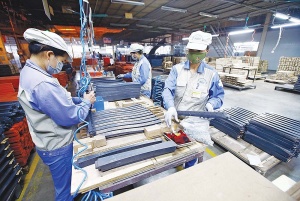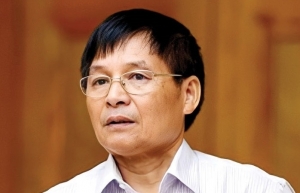Textile groups at pains to regather momentum
The Vietnam Textile and Apparel Association (Vitas) forecasts that the business results of textile and garment enterprises in the fourth quarter will decline compared to the same period last year due to the impact of many geopolitical factors. Importers in the United States, EU, and Japan have been lowering prices and reducing orders. Despite this, textile and garment exports in the first 10 months of 2022 reached $37.9 billion, up 17.2 per cent over the same period last year.
 |
| Textile groups at pains to regather momentum, source: shutterstock |
Vitas chairman Vu Duc Giang said, “Enterprises’ warehouses are full and inventories are so large that many customers are forced to stop ordering or even delay the delivery time. Businesses are missing 35-50 per cent of orders for November and December.”
The outlook for apparel orders in 2023 is clouded by the effect of the inventory cycle extending from Q4. This is also an indicator that the textile and garment industry will face more difficulties at the end of the winter and while preparing for spring, according to Giang.
Giang reported some businesses received orders, but with fierce competition on selling prices. In particular, in the US and EU, unit prices decreased by about a third, while the source of raw materials has been slow due to China’s anti-pandemic policy.
Meanwhile, Thanh Cong JSC has come close to its business target in 2022, with about 80 per cent of orders guaranteeing Q4 revenues. Chairman Tran Nhu Tung said, “The company is taking orders for the first quarter of next year but new orders are slowing down.”
Thanh Cong is one of the few textile companies to maintain sales as the growth of textile production slowed down. At the end of the Q3, Thanh Cong estimated its revenue to reach more than $142.8 million, up 25 per cent over the same period. Meanwhile, profit after tax reached well over $9 million, up 85 per cent compared to the same period last year and about 84 per cent of the year’s plan.
Elsewhere, Luong Van Thu, general director of Dap Cau JSC, said, “Orders to the US market decreased in both quantity and unit price, with some large-scale orders decreasing by half.”
Likewise, the production of Nam Dinh Textile Co., Ltd. is also deteriorating as the company reported a loss of more than $366,000 in the third quarter’s consolidated financial statements, while in the same period last year the profit was around $940,000.
The main reason is that the price of input materials for cotton and fibre is fluctuating continuously. At the same time, the selling price of yarn products decreased, and so did the volume of goods sold in the country as well as exports. In the first nine months, Nam Dinh Textile achieved revenues of $40 million, with profit after tax reaching over $1.9 million, down 27 per cent over the same period.
Many domestic analysts commented that the global economy remains unstable, and that the probability of a crisis or recession is increasing. Currently, sales contracts for the first half of 2023 have come to the point of negotiation, but are often temporarily delayed.
This development has also been reflected in the business results of Vietnam National Textile and Garment Group (Vinatex). General director Cao Duc Hieu said the group’s consolidated profits in Q3 were estimated at $8 million, down more than half compared to the average of the first two quarters of the year and only equivalent to the time of the pandemic outbreak.
“The market in the fourth quarter will be extremely disadvantageous. Vinatex can exceed the business target in 2022, with a profit that exceeding 25 per cent of the target assigned by the general meeting of shareholders. However, we have a less optimistic forecast about our business prospects moving into next year,” Hieu said.
 | Textile enterprises face difficulties in 2023 The economic downturn and high inflation in many major export markets exerts difficulties on Vietnam’s textile exporters for 2023. |
 | Choosing the optimal time for greener investment In the context of a drop in textile and apparel orders, the purchasing power of the industry has diminished as a result of the economic recession and inflation. Truong Van Cam, general secretary and vice chairman of the Vietnam Textile and Apparel Association, explained to VIR’s The Hai why now is the time for textile producers to explore restructuring and investing in their facilities under a greener model. |
What the stars mean:
★ Poor ★ ★ Promising ★★★ Good ★★★★ Very good ★★★★★ Exceptional
Related Contents
Latest News
More News
- State corporations poised to drive 2026 growth (February 03, 2026 | 13:58)
- Why high-tech talent will define Vietnam’s growth (February 02, 2026 | 10:47)
- FMCG resilience amid varying storms (February 02, 2026 | 10:00)
- Customs reforms strengthen business confidence, support trade growth (February 01, 2026 | 08:20)
- Vietnam and US to launch sixth trade negotiation round (January 30, 2026 | 15:19)
- Digital publishing emerges as key growth driver in Vietnam (January 30, 2026 | 10:59)
- EVN signs key contract for Tri An hydropower expansion (January 30, 2026 | 10:57)
- Vietnam to lead trade growth in ASEAN (January 29, 2026 | 15:08)
- Carlsberg Vietnam delivers Lunar New Year support in central region (January 28, 2026 | 17:19)
- TikTok penalised $35,000 in Vietnam for consumer protection violations (January 28, 2026 | 17:15)

 Tag:
Tag:




















 Mobile Version
Mobile Version